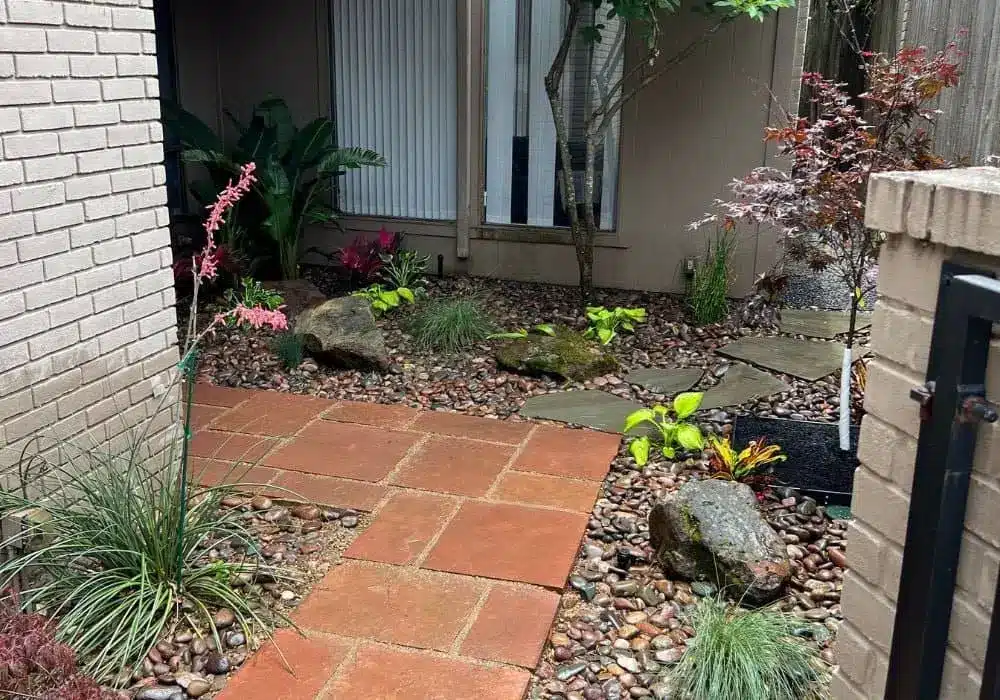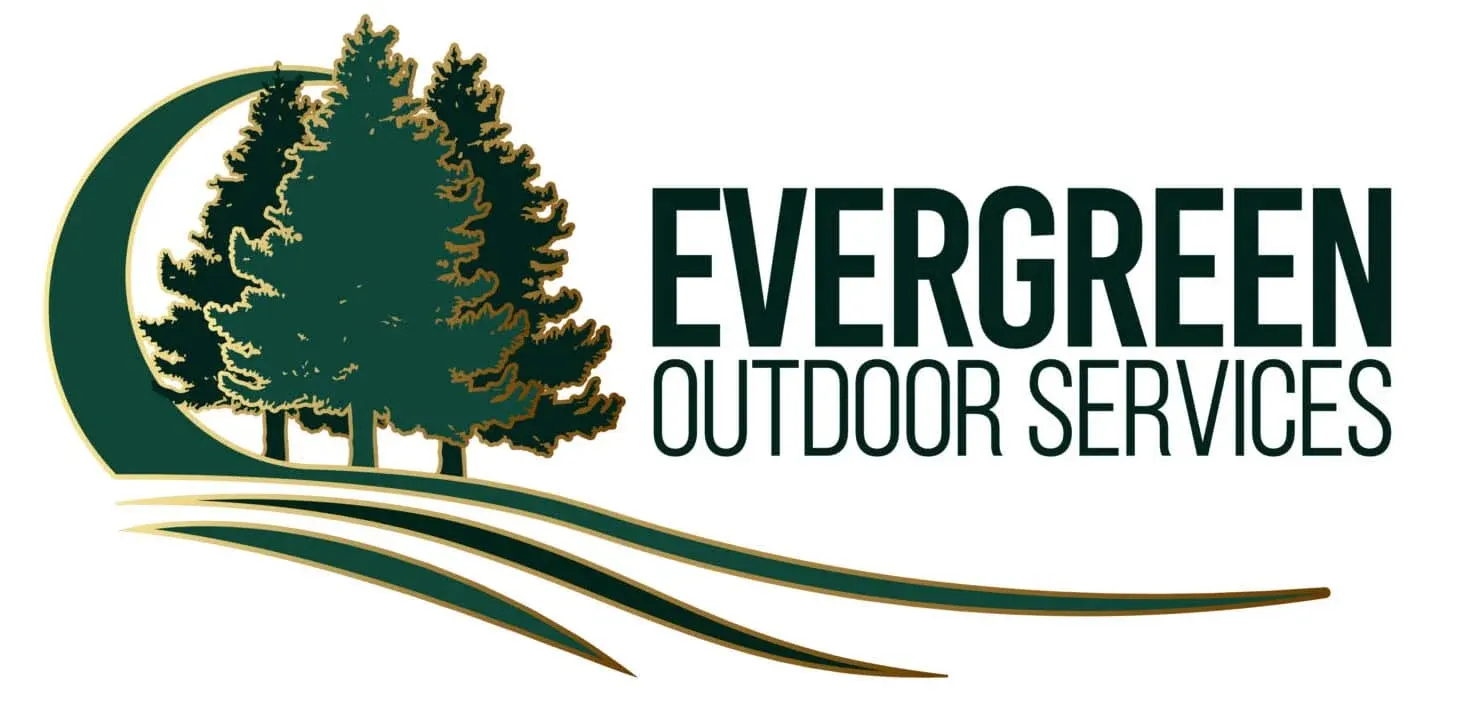Maintaining beautiful garden beds in Houston’s hot and humid climate can be challenging. However, with the right approach, your garden can thrive all year round. Here are some expert tips for garden bed maintenance that will help you achieve vibrant, healthy beds.
Gardening in Houston comes with unique difficulties due to the high temperatures and humidity, which often lead to plant stress and disease. Although rainfall is generally plentiful, especially during summer and spring, these conditions can be harsh on plants.
In this blog, you’ll learn essential strategies for maintaining garden beds in Houston’s extreme climate.
– Updated for 2026 season: Revised for Houston’s current heat, rain, and weed conditions, with reliable bed-maintenance tips that actually work here.

Seasonal Preparation
Adapting your garden beds for each season is crucial to ensure they remain healthy. Let’s explore how to prepare your garden for both spring and summer.
Spring: Soil Enrichment
In spring, it’s important to enrich your soil with compost. This decomposed organic matter significantly improves soil health. By mixing compost into your garden soil, you encourage root growth, enhance microbial activity, and improve water retention. Additionally, compost helps reduce soil temperature and strengthens plants’ resistance to diseases.
Summer: Mulching for Moisture
As summer temperatures soar, mulching becomes essential for maintaining your garden. Mulch acts as a protective barrier, reducing weeds and retaining moisture. Moreover, it keeps soil and roots cool, which is crucial during Houston’s intense summer heat. Applying a generous layer of mulch can make all the difference in keeping your garden beds healthy. If you’d rather have it handled professionally, explore our mulching and landscape maintenance services.
Fall: Cleanup and Cutback
As temperatures begin to cool, autumn is the perfect time to perform a fall clean up for your garden beds and set them up for a stronger next season. Start by removing spent annuals, fallen leaves, and any diseased plant material to reduce pest and fungus issues. Then, lightly cut back overgrown perennials and trim shrubs as needed to improve airflow and keep beds looking tidy. You can also top-dress with compost to keep feeding the soil as plants slow down.
Winter: Protect and Plan
Houston winters are usually mild, but cold snaps can still stress plants and damage tender growth. Add a light layer of mulch around the base of shrubs and perennials to protect roots from temperature swings, and avoid heavy pruning until late winter unless something is dead or broken. Winter is also a great time to pull cool-season weeds early, refresh bed edges, and plan any upgrades—so your garden beds are ready to take off when spring returns.

Soil Health
Healthy soil is the cornerstone of a thriving garden. If possible, test your soil’s pH and add organic matter to improve its structure and fertility.
Testing Soil pH
Testing your garden’s pH level is crucial for optimal plant growth. By testing the pH, you can identify deficiencies and better understand what your soil needs. This process guides you in choosing the right supplements, such as fertilizers and pH adjusters, to create the ideal growing environment.
Adding Organic Matter
Additionally, adding organic matter is key to improving soil structure and fertility. Organic matter provides a strong foundation for plant growth and increases soil resilience to environmental stress, ensuring long-term garden health.
Watering Techniques
Proper watering techniques are essential, especially in Houston’s climate. Watering early in the morning helps reduce evaporation and minimizes the risk of disease. Moreover, drip irrigation systems ensure deep, consistent watering, making them ideal for Houston’s hot conditions.
Watering Early in the Morning
Watering early in the morning is the most effective time to water your garden. By watering early, plants have time to dry before nightfall, reducing the risk of root rot and unwanted insects. Consistent night moisture can encourage disease growth, so it’s best to avoid watering late in the day.
Using an Irrigation System
Furthermore, using an irrigation system saves time and water. A drip irrigation system provides deep, consistent watering, which is especially beneficial in Houston’s climate. By following these watering practices, you can help your garden thrive while conserving resources.

Pest and Weed Control
Using natural methods like beneficial insects and organic mulch is an effective way to keep pests and weeds at bay. These organic solutions not only protect your garden but also promote a healthier environment.
Beneficial Insects
Beneficial insects, such as ladybugs, play a crucial role in pest control and pollination. By preying on harmful insects, they help control pest populations naturally, reducing the need for chemical interventions. In addition, they contribute to pollination, supporting the growth of healthy plants.
Organic Mulch
Furthermore, organic mulch offers multiple benefits. It enhances soil nutrition, prevents evaporation, and suppresses weed growth. By adding mulch, you also protect against soil erosion, creating a stable and nutrient-rich foundation for your plants. This steps makes your garden bed maintenance a much easier job – it has other benefits such as retaining water and preventing weeds!
Your Garden, Your Pride
Your garden is a reflection of your hard work and passion. By following these tips, you’re not just maintaining a garden—you’re creating a personal outdoor space that enhances your home’s beauty and value. Focus on soil health, effective watering, and organic methods to see your garden flourish while saving time and reducing your water bill.
At Evergreen Outdoor Services, we’re here to help you create and maintain the garden of your dreams. Contact us today to learn more about our professional garden bed maintenance services or find our BBB accreditation here for more info on our business.

Professional Care
We also provide professional tips for your yard on our ultimate guide on how to care for your lawn so feel free to learn more. If you’re facing issues or want professional guidance to make your garden healthy and aesthetically appealing, contact Evergreen Outdoor Services. We’d be happy to offer personalized advice and ensure your project is completed to perfection.
For using organic methods on your lawn and landscape, feel free to visit our other post, “Organic Care Tips”!
FAQ Section
What are the primary challenges of Garden bed maintenance in Houston’s climate?
Gardening in Houston can be difficult due to the high temperatures and humidity, which often create challenges in maintaining healthy garden beds.
How can I prepare my garden beds for different seasons in Houston?
To prepare your garden beds for the seasons, focus on planting during spring and fall, weeding and cleaning in summer, and monitoring trees and shrubs year-round. Additionally, be mindful of plant seasonality—avoid planting cool-season annuals in spring as they won’t survive the summer heat.
Why is soil health important for my garden beds?
Healthy soil leads to healthier plants, better defenses against heat and diseases, and more efficient water retention. With healthy soil, you’ll see more vibrant blooms and a stronger overall garden.
How can I test my soil’s pH level?
You can test your soil’s pH by collecting soil samples and using a home testing kit. Alternatively, send samples to a lab for analysis. Once your results are returned, you’ll receive recommendations to improve your soil’s health.
How can I control pests and weeds naturally in my garden beds?
Natural methods like mulching, regular weeding, and clearing debris are effective. In addition, using neem oil, beneficial insects like ladybugs, or natural insect repellents made from garlic and onion can help repel pests.
What are the benefits of using organic gardening methods?
Organic methods maintain healthy soil and promote beneficial microorganisms. By avoiding harsh chemicals, you protect the fertility of your garden and prevent harm to local ecosystems. Moreover, these natural techniques support long-term soil health and sustainability.
Conclusion
Consistently caring for your garden through pruning, watering, and other essential maintenance tasks is key to a thriving, well-maintained space. Not only does a healthy garden increase your property’s value, but it also creates an inviting outdoor area for relaxation and peace of mind. At Evergreen Outdoor Services, we advocate for organic methods, especially if you’re growing vegetables or spices. However, chemical pesticides and insecticides can be considered when necessary.
Want to get quick insight to your gardens health without a pro’s help for now? Check out our Garden bed assessment tool, free for you to use!

